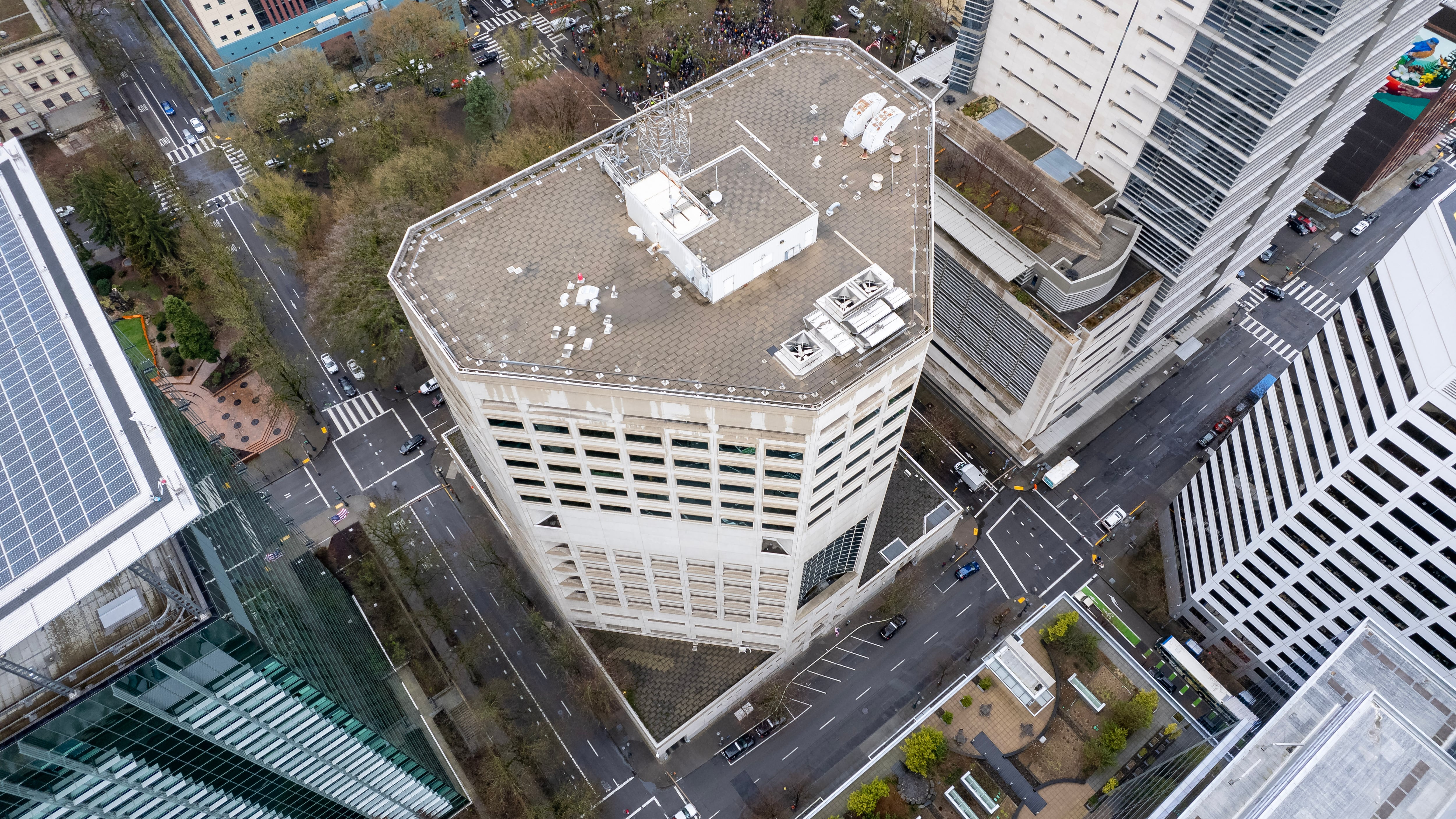In 2020, the Multnomah County Sheriff’s Office investigated allegations that at least four of its jail deputies had done favors for members of the Gypsy Joker Outlaw Motorcycle Club, according to a report newly obtained by WW.
This allegation might sound familiar. Two years later, the sheriff’s office investigated similar allegations after members of another gang, the Hoover Criminals, brought their claims to the FBI. In response, then-Sheriff Mike Reese brought in the Oregon State Police to conduct an independent investigation. The state findings were the subject of a WW cover story earlier this month.
That OSP report referenced an earlier 2020 investigation by the Multnomah County Sheriff’s Office, but provided scant details. WW obtained a copy of that investigation’s findings from the sheriff’s office through a public records request.
The report includes two new findings: First, that inmates alleged collusion with not one but two criminal street gangs; and second, that these claims had been brought to officials years earlier than previously disclosed.
The report, drafted by MCSO Detective Chris Stephens, is titled “Stephens Memo 2020″ but is otherwise undated. It recommends forwarding its findings to two superior officers, including a lieutenant, Carey Kaer, who’s now the sheriff’s chief deputy running the office’s law enforcement unit.
It’s unclear if and when it reached Reese, who now leads the Oregon Department of Corrections. Reese has previously told WW that he was unaware of the Hoovers’ allegations until informed by the FBI in April 2022. He was unavailable today to comment.
Members of both gangs—the Hoovers and the Gypsy Jokers—were locked up in Portland’s downtown jail for years as they awaited trial on federal murder and racketeering charges. The Gypsy Jokers, a notorious California biker gang that until recently operated six clubhouses in the Pacific Northwest, had attracted federal scrutiny after several members, including the Portland chapter president, kidnapped and brutally murdered a former member, Robert Huggins, in 2015. The president, Mark Leroy Dencklau, and another member were sentenced to life in prison in 2022.
Sometime prior to Stephen’s investigation, two co-defendants in that case—along with a third inmate in an unrelated case—brought stories about favorable treatment of their gang’s members by jail deputies to a federal prosecutor, Leah Bolstad. It is not clear what their motivations were for snitching, although the information was gleaned through “proffer” interviews, a process by which defendants typically provide information in exchange for more lenient sentences.
The inmates, unnamed in the report, accused four guards of doing favors for Gypsy Joker gang members in 2018, like allowing them to make unrecorded private calls and, despite a no-contact order, pass notes between cells in order to get their stories straight at trial.
The inmates also described threats and violence. One of the inmates told Bolstad, according to a letter she sent to Stephens that he included in his report: “Yesterday Deputy Leitner opened a cell door in the Hole and allowed three gang members to go and assault a young African American male named ‘CJ.’” (According to Bolstad’s letter, she believed Leitner to be a misspelling of “Lightner.” Deputy Nathanael Lightner admitted to investigators in 2023 that he’d popped a cell door to facilitate a fight, calling it a “lapse in judgement.”)
It’s not clear when Bolstad, the federal prosecutor, first learned of the claims or at what point she informed the Multnomah County Sheriff’s Office. A spokesman for the U.S. Attorney’s Office declined to comment. Contacted Thursday morning, MCSO was unable to answer questions by press deadline.
Still, the new report confirms that jail administrators were aware of gang members’ allegations against county deputies as early as 2020.
Until now, the earliest known admission of collusion with Multnomah County jail guards came from Hoover gang members in a series of proffer interviews in 2021 and 2022 conducted by the FBI and state police.
But Stephens’ report shows that by 2020, such claims had come to the attention of Multnomah County Sheriff’s Office detectives, and that, in fact, the office had already harbored suspicions about what was happening on the fifth floor units for some time.
According to Stephens’ report, MCSO officials believed that deputies working the fifth floor of the Multnomah County Detention Center were showing “preferential treatment” to gang members, “particularly Hoover gang members and Gypsy Jokers.” There were also “suspicions” that those deputies were “facilitating assaults.”
In March 2020, Stephens was brought in to investigate whether three deputies, Timothy Engel, Mirzet Sacirovic and Gustavo Valdovinos, had any connections with local gangs or had otherwise committed “any criminal actions.”
Stephens consulted one of his informants, a current Hoover gang member, who had provided “credible and reliable information” in the past.
That informant confirmed that “some of the guards at MCDC acted as if they wanted to be liked by the Hoovers,” and would try to impress the gang members by talking about having visited Hoover Street in Los Angeles. The informant said he’d once watched a guard open the cell doors of three inmates so they could go attack a new arrival. “The deputy just stood and watched for several minutes while calmly saying ‘stop fighting’ over and over in a monotone voice,” the informant said.
The informant couldn’t identify the deputy. There were no assaults documented at the time.
It is not clear what happened as a result of Stephens’ investigation. Security cameras were finally installed on that floor in November, MCSO tells WW.
Two years later, after a tip from the FBI, Sacirovic, Valdovinos and a third deputy were put on administrative leave and the Oregon State Police were called in to conduct a criminal investigation. The subsequent 142-page report uncovered allegations that Hoover gang members were “running” multiple units of the jail, and that deputies, including Sacirovic and Valdovinos, had been popping cell doors to facilitate fights between rival gang members.
